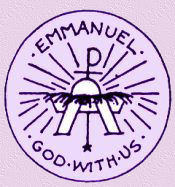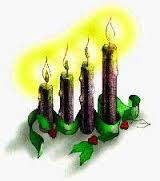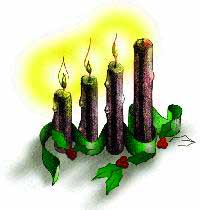Amias and Eliana were innkeepers. The had a little place with a few rooms in the town of Bethlehem, just south of Jerusalem. They weren’t really all that well-to-do, because not many people ever came to Bethlehem. They would get some guests every now and then when people from Egypt were making their way up to Jerusalem, or if people were returning to Egypt from the great city.
They did their best to keep the little inn in good repair. It helped that Amias had learned to be a good handyman from his father, who was a carpenter in Nazareth many years ago. Eliana was a wonderful cook and housekeeper, so the place was always nice, even if it wasn’t anything fancy. Still, because they weren’t in a major city, they didn’t ever have a lot of people at their little inn.
Then, one time, everything changed for a while. Things were busier than ever before, or ever since. The emporer, Caesar Augustus, sent out a decree that the whole world should be enrolled. He wanted to take a census so that he would know the name of every person and where they were from. Everyone had to go back to his or her native town to take part in the enrollment.
People came from all over to Bethlehem, if that was their hometown, and many who were on the way to Jerusalem or points north of there would stop along the journey, staying overnight to get a fresh start in the morning. Just like every other inn in the country, Amias and Eliana’s little inn was completely filled. There wasn’t an empty room to be found in any inn anywhere!
* * *
It wasn’t all that long ago that Mary had heard from the angel. Everything had changed. The angel told her that she would have a child who was God’s Son, and that he would bring the long-hoped-for salvation to God’s people. That was exciting news, but now it seemed like everything was falling apart. She had to travel with her husband Joseph to his home town, Bethlehem, to be enrolled in the census. Why did this have to happen now, so close to the time she was to give birth? It seemed like this couldn’t possibly have been the way God wanted to send his Son into the world.
But, sure enough, while they were travelling, the time came for her to have the child. Thank goodness they were there in Bethlehem, and Joseph looked earnestly for some place for them to stay so that Mary could give birth. But because of the census, every room in every inn was filled. They were turned away everywhere they went.
Finally, Joseph and Mary came to Amias and Eliana’s inn. He learned too that the inn was full, that there wasn’t even one small room for them to stay the night. Joseph explained to Elias that his wife was with child, and that the child was coming, and how they desperately needed a place to stay. Eliana looked at Mary and her heart was moved by Mary’s pain and fear. Eliana remembered what it was like when she gave birth to their daughter Hannah. She took Amias aside and said, “There must be something we can do. Look at her: it won’t be long until the baby is born. We can’t turn them away.”
Amias too was moved with pity, and said to Joseph, “It’s not much, but it’s all I have with this census going on. There’s a stable out back. I just cleaned it out today and it will at least give you some shelter. We can find some linens for you too.” Joseph and Mary took the offer, and settled into the stable out back.
Soon enough, it happened. Mary gave birth to her firstborn son. She wrapped him in swaddling clothes, which Eliana had been nice enough to give her. Mary and Joseph were so grateful to Amias and Eliana for the kindness they showed them in such a difficult time.
But it was Amias and Eliana who got the real reward. They were amazed to see all that happened. There were reports of angels singing and shepherds came to adore the newborn child. After a while there was even a visit from astrologers from the East, who had followed a bright new star to the place where the child was born. They learned the child’s name was Jesus, and they knew this was no ordinary child. The knew that something special would come of him.
Amias and Eliana couldn’t have been more right. Jesus was, and is, the special gift of all our dreams. He came to give us love and save us from our sins. He made it possible for us humans to go to heaven one day, where God reigns and Jesus lives forever. All we have to do is just what Amias and Eliana did: make some room for him – just a little space – in our hearts and our lives. Then everyone will see and adore Christ born in us and they can come to know Jesus too.









You must be logged in to post a comment.